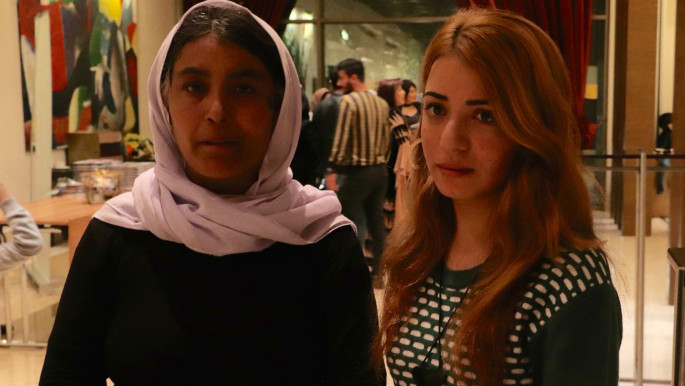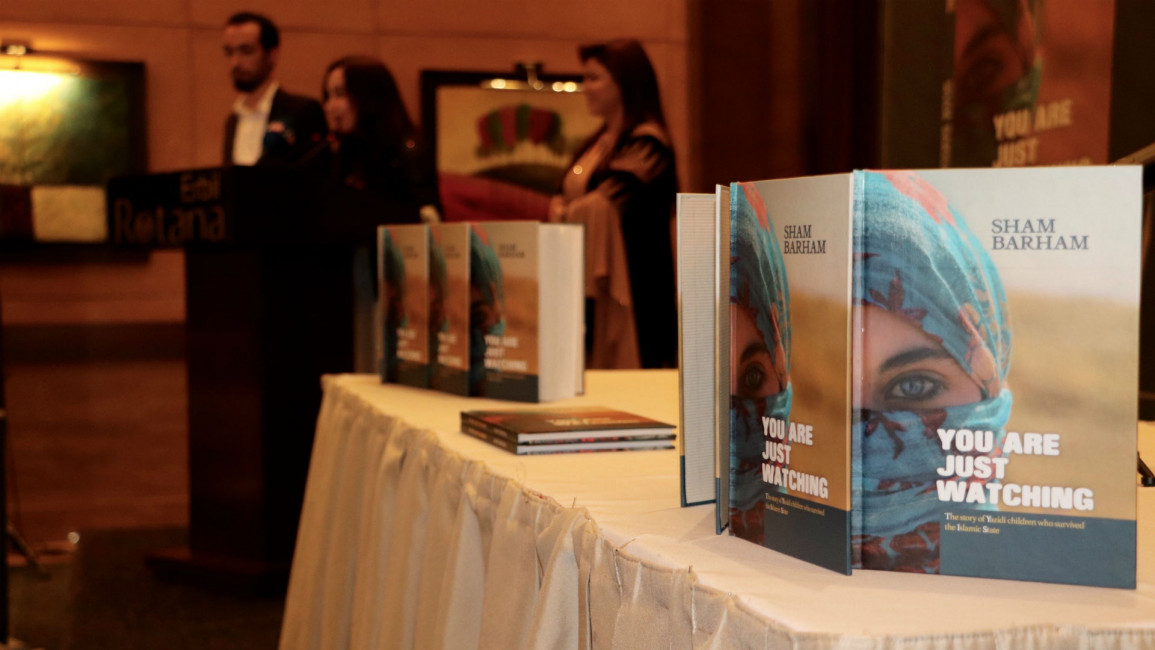
You are just watching: Teenage author breaks disturbing new ground after IS rule over Yazidis
The book's author, a 17-year-old high school student, was just 15 when she first began conducting interviews in IDP camps with survivors. She was helped by Yazidi journalist Risala Sharkani, who also spoke at the Tuesday night event.
"We [as Kurds] have to write our history by ourselves and we have to react to it by ourselves," said Sharkani. The writers and intellectuals of Kurdistan must continue to document the atrocities they have endured, she maintains.
Sham was also supported by her parents. Her father, Barham Ali, is a well-known journalist from BasNews and her mother, Naz Abdullah, is a famous Kurdish media personality. Sham had the idea to write the book after being included in her parents work and accompanying them on their charitable campaigns. Sham's first foray into journalism suggests she will follow in the footsteps of her famous parents.
This book focuses on the experiences of children and documents the stories of ten who survived life under the Islamic State group.
"Since the tragedy, the mainstream media has put the spotlight only on the adult victims and there wasn't a specific media to focus on the children," says Sham. As a child herself she felt she could relate more to the stories of children.
Twitter Post
|
Four years later, the family still live in an IDP camp in Erbil - and, despite the presence of international aid groups, Salam's mother feels that no-one is helping them.
She is a mother to eight children, one of whom was killed during the war. She gently weeps as she holds up a 5,000-Iraqi-dinar bill (about $4). This is the amount her cousin was sold for. She is still trapped inside the city of Raqqa.
"The title [of the new book] says you are just watching - that's because… to be honest, most of the world is just watching," says Sham.
"If the world is not just watching, then the world should do something about it."
You are just watching joins recently published books on the topic, including Layla and the Nights of Pain, written by an Yazidi survivor, and The Last Yazidi Genocide by activist Amy Beam.
Beam argues that the world knows the story of the Yazidi women, and that it's time for the international narrative to move on to discussing mass migration and resettlement.
Children go missing in times of conflict. Separated from their parents during times of conflict, children can be abducted, forced into military service or servitude, orphaned and adopted, and finally they can be found and reunited.
In the aftermath of the chemical bombardment of Halabja, 200 children were reported missing - either killed or "rescued" and taken to Iran, where Iranian families adopted them. To this day, victims are waiting to be reunited with their biological relatives through DNA testing.
 |
|
| The mother and sister of Salam, who features in the book [Vanessa Powell] |
One famous case was that of Maryam of Halabja who was reunited with the wrong family after a mix up in the DNA department.
In East Timor, thousands of children were stolen during the bloody and violent Indonesian occupation. An estimated 4,000 children were taken by Indonesian soldiers who thought they had a right to take children from their families for either military service or to be sent back to Indonesia.
Some were taken by well-intentioned families for adoption. Decades later these children, now adults, are still seeking reunification.
With more than 3,000 Yazidi women and children still missing it is hoped this new book by Sham Barham can further the Yazidi case for justice - and help find the missing Yazidi children.
Vanessa Powell is a freelance journalist who lives in Erbil, Iraqi Kurdistan.
Follow her on Twitter: @VanessaInErbil
The New Arab Book Club: Click on our Special Contents tab to read more book reviews and interviews with authors:



